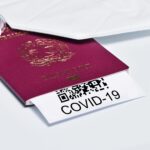Recent legislative proposals are set to profoundly reshape the landscape of Canadian citizenship by descent. For years, a restrictive policy known as the “first-generation limit” has prevented many Canadians born abroad from passing on their citizenship to their own children born outside Canada, creating a cohort of individuals known as “Lost Canadians.” The proposed amendments to the Citizenship Act promise a momentous shift, aiming to restore citizenship rights to many while introducing a new, rigorous standard to prove a connection to Canada. This comprehensive article delves into the history of the current law, analyzes the proposed changes, and explores the practical implications for families around the world with ties to Canada.
Table of Contents
- The Historical Heartbreak: Unpacking the First-Generation Limit and the Rise of ‘Lost Canadians’ A Glimmer of Hope: Analyzing the Proposed Legislative Amendments to Citizenship by Descent The Substantial Connection Test: A Critical New Hurdle in the Citizenship by Descent Framework Navigating the Nuances: Who Benefits and Who Faces New Challenges? Frequently Asked Questions
The Historical Heartbreak: Unpacking the First-Generation Limit and the Rise of ‘Lost Canadians’
To fully appreciate the gravity of the proposed changes, one must first understand the legislative history that created the very problem these amendments seek to solve. In 2009, the Canadian government enacted significant amendments to the Citizenship Act. A central, and highly consequential, change was the introduction of the “first-generation limit” (FGL). This rule stipulated that a Canadian citizen parent born outside of Canada could not automatically pass on their citizenship to their own child if that child was also born outside of Canada. In essence, Canadian citizenship by descent was cut off after the first generation born abroad. The rationale at the time was to prevent the perpetuation of “Canadians of convenience”—individuals with citizenship but no meaningful connection to the country. However, the real-world impact was far more complex and, for many, devastating. This policy inadvertently created a significant group of individuals who became known as “Lost Canadians.” These are people who, despite having a Canadian parent and a strong sense of Canadian identity, were denied citizenship simply because of where they and their parent were born. Families were fractured by arbitrary lines of nationality, with some siblings being citizens while others were not, based solely on their country of birth. Many Lost Canadians only discovered their predicament when they applied for a passport or sought to move to Canada, leading to profound personal and professional crises.
The legal challenges against the first-generation limit have been ongoing for years, arguing that the rule is discriminatory and violates the Charter of Rights and Freedoms. Courts have grappled with the issue, with a landmark Ontario Superior Court of Justice ruling in 2023 finding the FGL unconstitutional. This judicial pressure, combined with relentless advocacy from affected families, has been a primary catalyst for the new legislative proposals. The stories of these individuals highlight the deep emotional and practical toll of the FGL—from being unable to care for aging parents in Canada to being separated from family and heritage. The policy, intended to strengthen the value of Canadian citizenship, was seen by many as undermining the fundamental principle that a Canadian is a Canadian, regardless of their birthplace. The proposed legislative overhaul is, therefore, not just a technical correction but a deeply symbolic and emotional course correction aimed at righting what many consider a decade-long wrong.
A Glimmer of Hope: Analyzing the Proposed Legislative Amendments to Citizenship by Descent
The new bill introduced by the federal government represents a beacon of hope for thousands affected by the first-generation limit. The cornerstone of the proposed legislation is the automatic extension of citizenship by descent beyond the first generation. This change would effectively abolish the hard-line 2009 rule. If passed, the law would operate retroactively, meaning it would restore citizenship to individuals who were previously denied it due to the FGL. This includes those who are now adults and have lived their entire lives without the Canadian citizenship they feel is their birthright. The primary mechanism for this restoration is the introduction of a new legal framework that moves away from the simple, yet restrictive, first-generation cut-off and towards a more nuanced assessment of a family’s connection to Canada. This is a monumental policy reversal that acknowledges the validity of the claims made by Lost Canadians and their families. It recognizes that ties to Canada are not severed simply by being born abroad for two consecutive generations.
The amendments are designed to be comprehensive, addressing the gaps and injustices created by the previous law. The government’s stated intent is to create a citizenship framework that is both inclusive and fair, reflecting the global nature of many Canadian families. By extending citizenship rights to subsequent generations born abroad, the legislation would ensure that children are not penalized for the life and career choices of their parents or grandparents. This is particularly relevant in today’s interconnected world, where many Canadians live, work, and study internationally for extended periods. The proposed law would automatically confer citizenship on a person born abroad to a Canadian parent who was also born abroad, provided that parent can demonstrate a “substantial connection” to Canada. This restorative measure is the heart of the bill and represents a definitive and powerful response to years of advocacy and legal battles.
The Substantial Connection Test: A Critical New Hurdle in the Citizenship by Descent Framework
While the proposed amendments are largely restorative, they are not a simple return to the pre-2009 rules. To balance the extension of citizenship rights, the government is introducing a new, stricter requirement: the “substantial connection” test. This is the most significant new criterion and will become the central pillar of the future citizenship by descent framework. Under this test, a Canadian parent born outside Canada who wishes to pass on citizenship to their child also born outside Canada must prove they have a substantial connection to the country. The bill defines this connection in a very specific, quantifiable way: the parent must have accumulated at least 1,095 days (equivalent to three years) of physical presence in Canada before the birth of their child. This is a critical departure from the previous system and introduces a tangible, evidence-based hurdle that applicants must overcome. It aims to ensure that the parent has a meaningful residential tie to Canada, thereby grounding the child’s claim to citizenship in more than just ancestry.
This new test introduces a higher bar than what existed before 2009, creating a new set of rules for families to navigate. Proving 1,095 days of physical presence will require meticulous record-keeping, including entry and exit records, school transcripts, employment records, and tax filings. For families who have spent significant time abroad, gathering this documentation could prove challenging. The test is designed to be a clear and objective measure, moving away from the arbitrary nature of the first-generation limit. However, its rigidity could create new issues for those who have a genuine connection to Canada but may fall just short of the 1,095-day threshold for various reasons. The introduction of this test reflects a legislative compromise—one that restores rights to Lost Canadians while simultaneously reinforcing the principle that Canadian citizenship should be linked to a concrete connection to the country.
Key Takeaways from the Proposed Changes
- Repeal of the First-Generation Limit: The absolute ban on passing citizenship beyond the first generation born abroad will be eliminated. This is the core restorative element of the new bill. Introduction of the Substantial Connection Test: A new requirement is established. A Canadian parent born abroad must prove they have been physically present in Canada for at least 1,095 days before their child’s birth to pass on citizenship. Retroactive Application: The changes will apply retroactively, meaning individuals previously denied citizenship due to the FGL, including those now well into adulthood, will have their Canadian citizenship recognized, provided their Canadian parent met the substantial connection test. A Path to Citizenship for the Second Generation and Beyond: The new framework creates a consistent and predictable path for Canadian citizenship to be passed down through multiple generations born abroad, as long as each subsequent parent meets the physical presence requirement.
Navigating the Nuances: Who Benefits and Who Faces New Challenges?
The primary beneficiaries of these proposed amendments are, without question, the “Lost Canadians” and their families. Individuals who have spent years in legal and administrative limbo will finally have a clear path to having their citizenship recognized. The retroactive nature of the bill is particularly powerful, as it offers resolution not just for future generations but for those already impacted. For example, a 30-year-old born in Germany to a Canadian parent who was, in turn, born in the U.K., would now be recognized as a Canadian citizen from birth, provided their Canadian parent spent at least three years in Canada before they were born. This change will have profound, life-altering consequences, allowing these individuals to apply for Canadian passports, live and work in Canada without restriction, and fully participate in Canadian society. It also benefits families who wish to maintain strong ties to Canada across generations, providing them with a clear and transparent set of rules for passing on citizenship while living abroad.
However, the new legislation also introduces fresh challenges. The 1,095-day physical presence requirement is a significant and inflexible hurdle. Families will need to meticulously document their time in Canada. For a Canadian parent who was born abroad and spent their childhood in Canada before moving abroad again for work or family reasons, proving this presence may be straightforward. But for others, such as those whose parents were in diplomatic service, missionary work, or international business and who may have only spent summers or shorter periods in Canada, meeting the three-year threshold could be difficult. The burden of proof will fall on the applicant. It is also important to note that discretionary grants of citizenship may still be available in exceptional, compassionate cases, but the new bill is clearly shifting the primary pathway for citizenship by descent to this objective, evidence-based test. As a result, while many doors are opening, new, more stringent ones are also being put in place.
Frequently Asked Questions
What is the first-generation limit on Canadian citizenship?
The first-generation limit is a rule implemented in 2009 that prevents a Canadian citizen born outside Canada from automatically passing on citizenship to their child if that child is also born outside of Canada. The proposed amendments aim to repeal this rule.
Who are the “Lost Canadians”?
“Lost Canadians” is a term used to describe individuals who were denied or lost their Canadian citizenship due to complex and often arbitrary provisions in Canada’s citizenship laws. This group specifically includes people who could not become citizens because of the first-generation limit implemented in 2009.
What is the new “substantial connection” test for citizenship by descent?
The proposed “substantial connection” test is a new requirement for a Canadian parent born abroad to pass on citizenship to their child also born abroad. This parent must prove they have been physically present in Canada for a cumulative total of at least 1,095 days (three years) before the child’s birth.
How do the proposed amendments affect people already born?
The amendments are designed to be retroactive. This means that individuals who were born after 2009 and were previously ineligible for citizenship because of the first-generation limit will automatically be considered Canadian citizens from birth, provided their Canadian parent meets the new substantial connection test.
Will these changes to citizenship by descent happen automatically?
Once the bill becomes law, citizenship for those who qualify retroactively will be legally recognized from birth. However, these individuals will still need to apply for a Proof of Citizenship certificate to officially document their status and to be able to apply for a Canadian passport.
Talk to us to find out more. ->
The content above is not intended to provide legal advice or opinions of any kind and may not be used for professional or commercial purposes.







